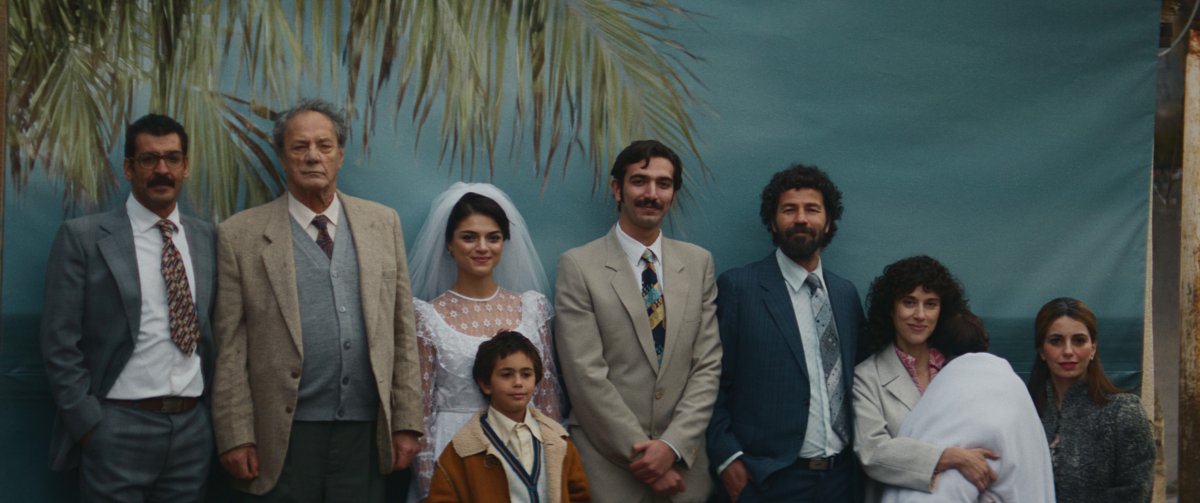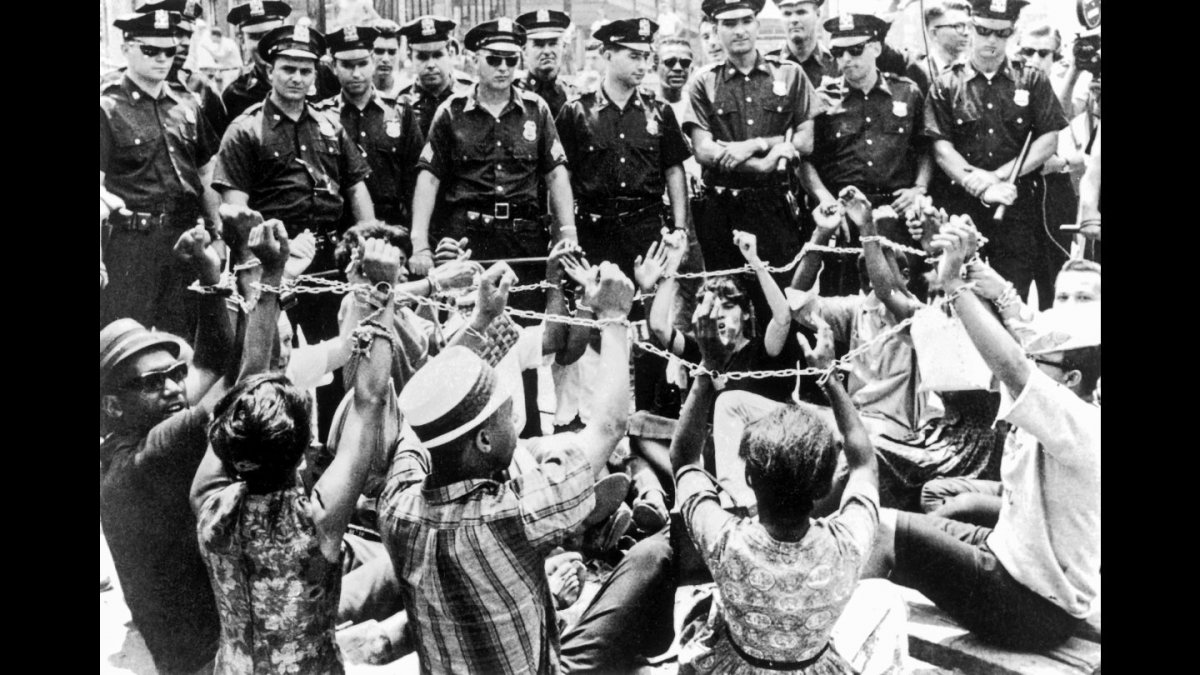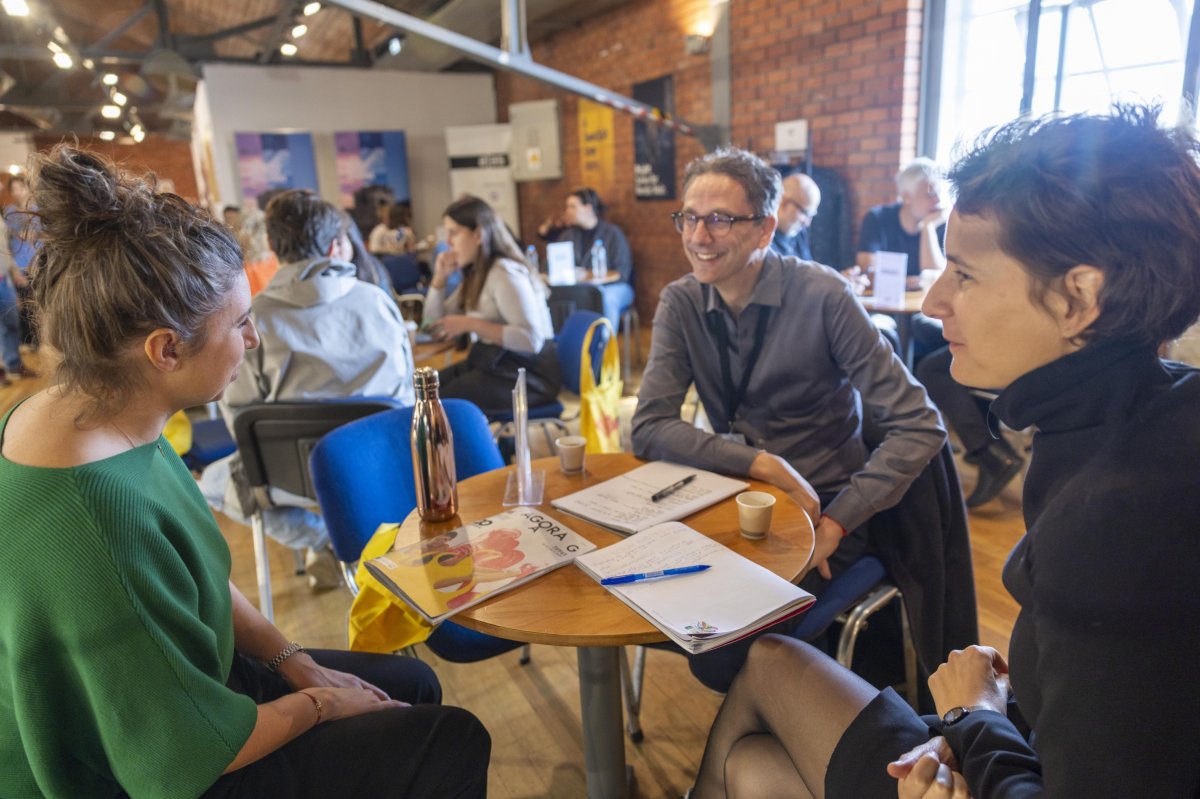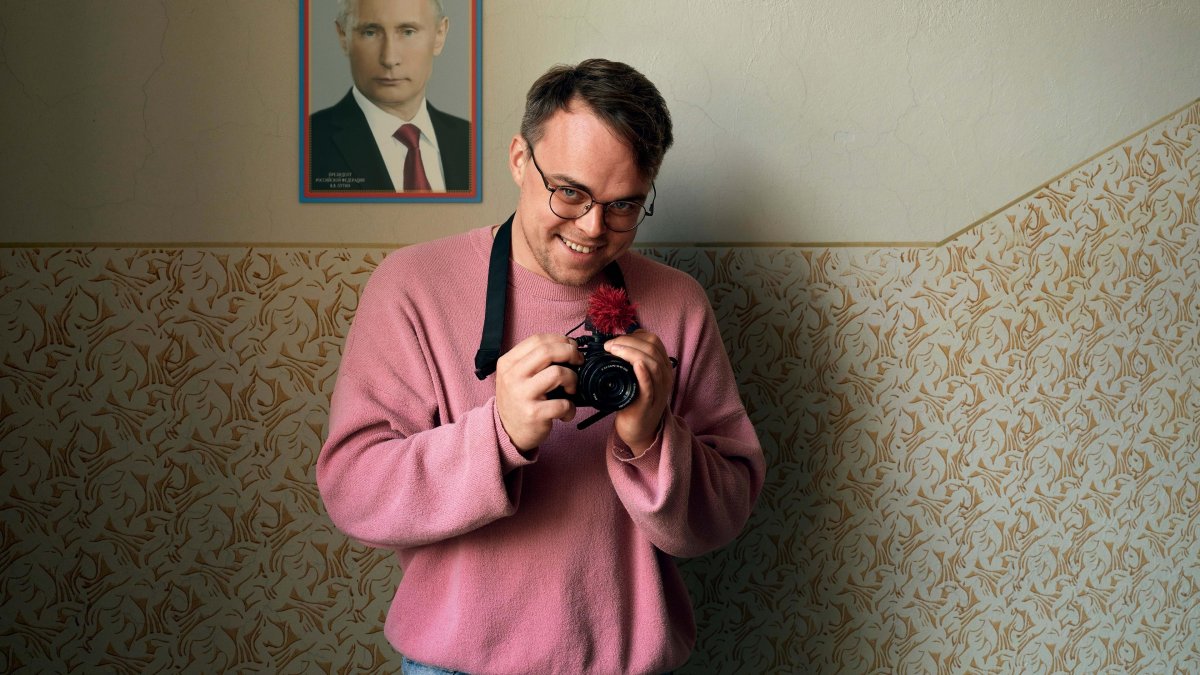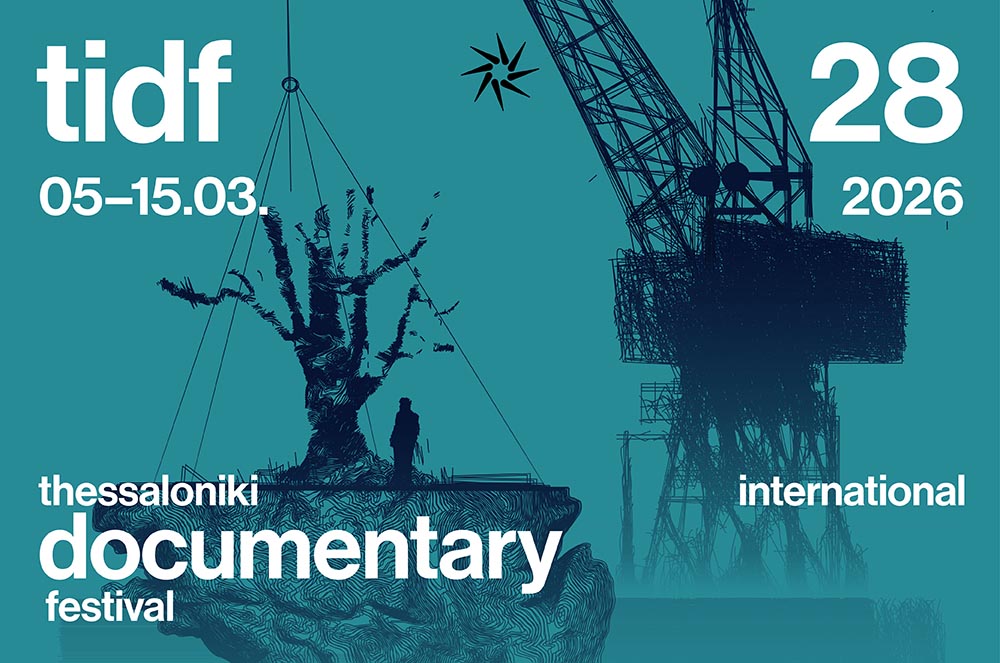The 66th Thessaloniki International Film Festival is hosting a deeply political tribute titled Fragilities, focusing on the limitations that demarcate the fragile human nature. The tribute is part of the renewed and extended Survey Expanded section of the Meet the Neighbors+ competition section, which includes films from the wider neighborhood of Greece. Every year, the Survey Expanded section revolves around a different thematic core, aiming to map out, highlight and foreground currents in cinema and art, social and geopolitical issues, as well as to unearth the most pioneering, innovative and creative voices. The tribute’s films subvert the rules of power, while dissecting several burning topics of our times, such as war, displacement from the ancestral land, living under occupation, censorship, and interventions by totalitarian systems.
Fragility stands as a political and revolutionary act in an era where everything is consumed at a frenzy speed. Fragility is not contained in the thematic context , but also applies to the work of art itself, as it runs counter to the prevalent narrative, makes use of time by placing it under a humane pace, and sheds light on the ruptures and silences that characterize our existence. The tribute’s 11 films turn the spotlight on universal issues such as the constant negotiation of identity, the influence exerted by the family past and cultural legacy, the violence of patriarchy, the safeguarding of dignity and integrity.
Cinema, serving as a magnifying mirror of the sweeping changes occurring in society, has time and time again brought our fragile side to the surface. The tribute explores how social structures are crumbling against the burden of their proper contradictions, while reminding us that resilience, developed instinctively as a survival mechanism, functions as the ultimate act of hope and resistance.
In addition, this year’s Non-Catalog is designed by Karlopoulos & Associates as a “fragile” collectible object, including texts written by the Festival’s artistic director Orestis Andreadakis, the Festival’s Head of Program Yorgos Krassakopoulos, the Festival’s Head of Tributes & Survey Expanded section Dimitris Kerkinos, the Festival Publications’ Content Manager Geli Mademli, playwright, dramaturg and translator Manos Lamprakis, and the directorial duo Lida Vartzioti and Dimitris Tsakaleas. The Non-Catalog also includes a large-scale interview by Dennis Lim, curator and Director of the New York Film Festival.
The films lining up at the Meet the Neighbors+ competition section originate from the countries of Southeastern Europe, the Mediterranean and the Middle East that fall under the scope of Agora, the Festival’s developmental branch.
Let’s take a glance to the 11 films of the Fragilities tribute:
After Dreaming (Armenia-USA-Mexico, 2025) by Christine Haroutounian takes us not too far from the Ararat Valley, the biblical land where Noah’s Ark was found after the flood to commence humankind anew, in the perilous, contested region of Artsakh (for Armenians), or Nagorno-Karabakh (for Azerbaijanis), a profound, metaphysical journey unfolds in the war-torn countryside. A young Armenian soldier travels alongside a teenage girl who has just lost her father, but isn’t yet aware of it – after all, on the eve of the funeral, her family sought to remove her from the village, so that she would never come to know that the man’s cold-blooded murder was committed by his fellow villagers, who had mistaken him for an enemy. Departing from linear storytelling and defying realism, the filmmaker takes the camera in hand and follows her heroes into a descent that resembles a fever dream, wading through volatile, blurred, ethereal images that soften the edges of reality. Embracing abstraction; and as if entranced by a transcendental rhythm, she weaves together vignettes drawn from the universal mythology of war, nation, religion, and family, in order to escape into a new realm of poetic vision.
All That’s Left of You (Germany-Cuprus-Palestine-Jordan-Greece-Saudi Arabia, 2025) by Cherien Dabis unfolds an epic-scale journey into the depths of the Palestinian plight, masterfully tracing and carefully dissecting a multifactorial and convoluted intergenerational trauma. Starting in medias res, in a setting of pulsating action and anguish that leaves a tormenting question unresolved, we are plunged (and swept) from the get-go into a story of undulating pain and a recurring sense of futility. Divided into four chapters – the surge of violence during the Nakba in 1948; the consolidation of a new status quo in the West Bank in 1978; the outbreak of the First Intifada in 1988; and the filmic present of 2022 – Cherien Dabis’s devastating All That’s Left of You makes us both witnesses and participants in a fathomless and irreparable loss. Yet Dabis resists the lure of convenient sentimentality, weaving instead a labyrinthine character study, shrouding a series of underground and catastrophic conflicts within the bounds of family. In a meticulously paced yet heart-wrenching finale that imparts a bitter aftertaste of unfinished repatriation and existential uprooting, life and hope emerge as the sole bulwark against inhumanity and dehumanization.
Dracula (Romania-Austria-Luxembourg-Brazil, 2025) by Radu Jude revolves around a young and curious filmmaker who challenges his creativity with the limitless possibilities of a fake AI. A surprising blend of stories, both old and new, about the ancestral myth of Dracula: a vampire hunt, hordes of zombies, and Dracula crashing a strike. A science-fiction tale about Vlad the Impaler’s return, a tragic romance that intertwines legends with AI-generated kitsch stories. A provocative, jarringly self-aware, assertively sloppy, and deliciously raw film, which serves both as a shock and a parody. No matter the listing of attributes and descriptions, this ingenious synthesis of references and discourses resists any easy classification, while feeding on its excess. Our times might not be ready for Radu Jude’s Dracula – but after all, in Bram Stoker’s masterpiece, the Count casts no reflection in the mirror.
In Alexandre Koberidze’s Dry Leaf (Germany-Georgia, 2025), a highly original road movie, the camera focuses from the outset on a dry leaf – as fragile as the imagery shot on an old Sony Ericsson mobile phone. Sports photographer Lisa vanishes without warning, leaving behind a letter asking not to be found. She was last seen photographing rural football fields in remote Georgian villages. Her father, Irakli, unable to accept her disappearance, sets out on a journey to find her. He teams up with Levani, Lisa’s enigmatic best friend, and together they travel across the countryside, retracing her steps through quiet villages, meeting kind strangers, and speaking with children playing football along the way. What they uncover are only fragments of Lisa’s presence – traces that become increasingly elusive the further they go. Just as they begin to lose hope, a mysterious event offers one final clue, drawing Irakli and Levani into the unknown and rekindling a faint glimmer of hope. “In Alexandre Koberidze‘s 2021 breakout What Do We See When We Look at the Sky? the audience is politely requested to momentarily close their eyes… Defiantly peculiar, Dry Leaf is a joy for devotees of the strange, singular, and sometimes transcendent. It’s a movie that incites you to ride shotgun alongside, with the windows down on a lazy trip to nowhere in particular, that ends up taking you everywhere in particular” (Jessika Kiang).
Eagles of the Republic (France-Sweden-Denmark-Germany, 2025) by Tarik Saleh, the final installment of the “Cairo Trilogy” by the Swedish-Egyptian filmmaker, screened at the Cannes Film Festival and featuring a captivating score by Alexandre Desplat, is a stylized thriller and arguably the boldest political film of the year. In modern-day Egypt, under the authoritarian President Abdel Fattah El-Sisi, actor George Fahmy (portrayed by the compellingly versatile Fares Fares), the country’s most renowned star and an object of public adoration, is descending from the height of a triumphant career. When the government asks him to embody el-Sisi in a propagandistic biopic, George is in no position to refuse. After all, he (self-)proclaims himself the “Pharaoh of Egyptian cinema.”... The once apolitical star will gradually adopt an anti-regime consciousness, only to find himself trapped in the system and falling prey to it. A film that begins as satire and turns into a chilling political thriller, as well as a daring denouncement, and a sumptuous, CinemaScope, witty tribute to the art of cinema.
In Everybody Loves Touda (France-Morocco-Belgium-Denmark-The Netherlands-Norway, 2024), the titular heroine, a poor, uneducated yet emancipated woman, raises her deaf son, Yasin, alone in a small village in the Atlas Mountains. Touda survives in an oppressive patriarchal environment by singing in nightclubs and festivals, under the lustful, intrusive gaze of men. She dreams of making it as a sheikha and gaining recognition as a true artist, a performer of this traditional Moroccan music, to secure a better future both for herself and her son. Determined to take charge of her own life, Touda leaves for the capital. In Casablanca, her dream of being free and pursuing her art is put to the test. Through an intricate narrative, co-written by the filmmaker and Maryam Touzani (The Blue Caftan), and guided by the entrancing cinematography by Virginie Surdej, we follow, enraptured, Nisrin Erradi in the role of the vulnerable yet proud Touda, as she passionately performs songs of resistance and liberation – as if she were an enchantress warding off every threatening force on this world.
In Growing Down (Hungary, 2025) by Bálint Dániel Sós, we meet Sándor, widowed at a young age and father to a twelve-year-old boy, is ready to make a fresh start in his life and build a new family with his partner, Klára. However, fate has a very unpleasant surprise in store for him when his son gets involved in a horrible incident that concerns Klára’s daughter, and he ends up becoming the sole witness to a true tragedy. Sándor, torn between parental love and personal responsibility, tries to do damage control: cynical, majestic, and small, like a Dostoevskian character, he learns all over again how to fit into a world that seems to have shrunk, while passing on to his child his own fragile version of survival. They may pull through the ordeal, but will they ever figure out what happened? A newcomer director radically revitalizes, though with remarkable restraint, the traditional cinema of moral dilemmas and delivers an unparalleled drama – dimly lit and mystical, minimalist yet vast within its mere 82 minutes – in an atmospheric debut that captures, in stark black and white, all the nuanced shades in between the gray area of guilt.
In How Come It’s All Green Out Here? (Serbia-Croatia-Bulgaria, 2025) by Nikola Ležaić, a 34-year-old filmmaker, the alter ego of the film’s director, Nikola Ležaić, in a pivotal moment of his life – preparing for fatherhood as his artistic career seems to have stalled – embarks on an unexpected, soulful quest. Alongside his father, he journeys across Serbia to Dalmatia, as an homage to the deceased members of his family, to both personal and collective roots, and to himself. A Balkan road movie that channels both the spirit of indie American cinema and the bittersweet sensibility of a Kiarostami-esque world, brimming with self-irony and melancholy, How Come Ιt’s All Green Out Here? achieves something rare: delicately and profoundly blending the individual with the collective – the fear of fatherhood and adulthood with the legacy of historical trauma – the film appears to reflect, through its unrushed pace and its ritualistic long takes, the fleeting essence of an entire geographical and cultural landscape, as well as that of a generation wrestling with its shadows. Fifteen years after his exceptional debut, Tilva Roš (TIFF 2010), Ležaić returns, effortlessly delivering a rich, meaningful film.
In Emine Emel Balcı’s I’m Here, I’m Fine (Türkiye-Germany, 2025), Filiz is a young middle-class mother suffering from postpartum depression. She feels stifled by the good intentions of her family, who invade her personal space in their attempts to help with the baby. She is further pressured by her husband, who wishes for a second child. Meanwhile, she’s struggling to meet the demands of her job. Longing to do something just for herself, she decides to buy “a car of her own.” During her search for a car, she meets Şule, a woman trying to escape her abusive husband. A bond of mutual understanding and solidarity will develop between them, one that will aid both women in working through their problems. Emine Emel Balcı’s sophomore fiction film, making its international premiere in Thessaloniki, unveils with subtlety the vulnerability of women in contemporary urban Turkey, but also their ability to shed passivity, overcoming with silent strength each and every single obstacle standing in their path.
Stepne (Ukraine-Germany-Poland-Slovakia, 2023) by Maryna Vroda, set against the stunning winter landscapes of Ukraine, vanishing villages, and a society that is blindly attached to the pasty, unfolds the story of Anatoliy, a man who comes back home from the big city to care for his dying mother. In her last days, an encounter with his brother, and a woman he loves ,lead him to reflect on the life he has lived and the choices he has made along the way. And then, moments before her death, the mother discloses to Anatoliy that she has a treasure buried in the shed... Shot with poetic restraint and sensitivity, Stepne meditates on the theme of loss, the sense of belonging, and the rapidly changing reality of the country. The film premiered in the Competition Section at the 76th Locarno Film Festival, where Maryna Vroda won the Pardo for Best Director and the FIPRESCI Award.
Trust (Italy, 2024) by Daniele Luchetti poses a torturing question: Can a secret be so threatening that it compels you to live as an honest man? Pietro, a respected schoolteacher, begins a tempestuous affair with Teresa, his gifted and precocious student. In the heat of a quarrel, they agree to exchange devastating secrets – truths so damaging that their revelation would ruin them both. Years later, Pietro has become a celebrated writer and devoted family man, yet he cannot escape the dread that Teresa, armed with his confession, might one day return to shatter the life he has so painstakingly built. Based on Domenico Starnone’s acclaimed novel, Daniele Luchetti’s film, brimming with Hitchcockian suspense, explores the fragility of trust and the price of ambition. The film won the Best Actor (Elio Germano) and Best Screenplay Awards at the Italian Golden Globes, and Luchetti received the Best Director (Drama) Award at the 2024 Filming Italy Venice Awards.


